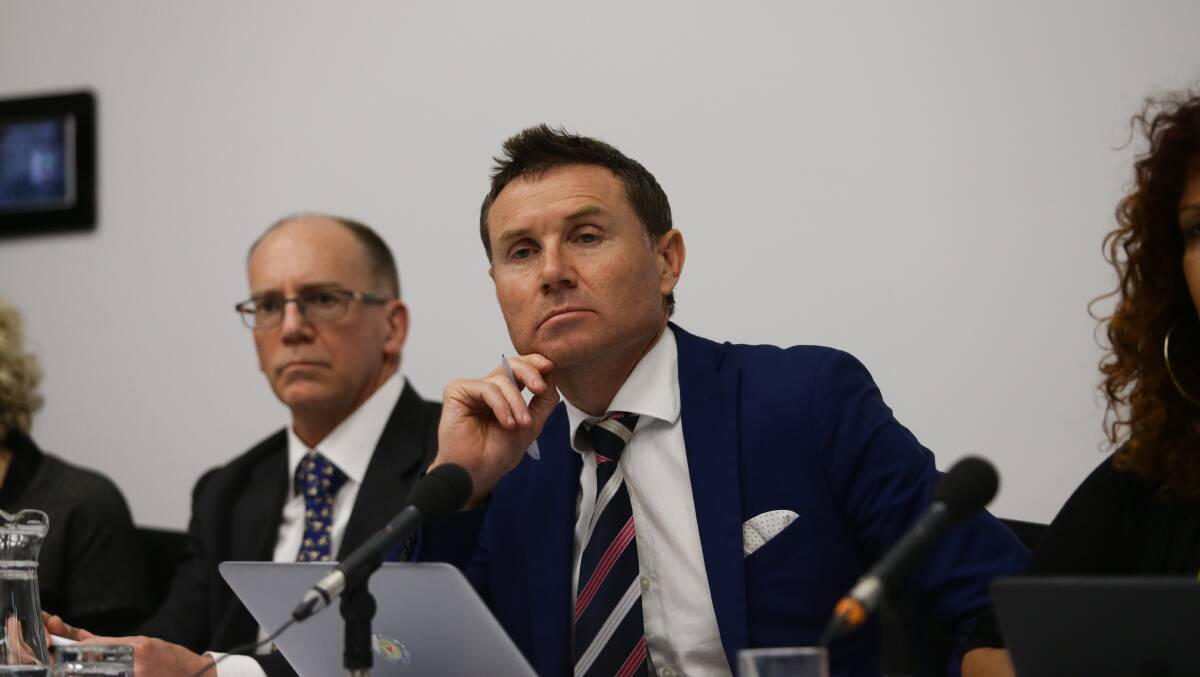
The Liberal chair of a parliamentary inquiry into the federal government's handling of toxic firefighting contamination has expressed concern his own government could be "aggravating" the size of a potential legal payout to victims by taking a "disorganised or overtly slow" response to the crisis.
Subscribe now for unlimited access.
$0/
(min cost $0)
or signup to continue reading
Andrew Laming, a Queensland Liberal MP and former medical practitioner, warned that if the per- and poly-fluoralkyl [PFAS] chemicals were proven to cause serious health effects in years to come, the current government might be judged for not having done enough to help victims.
The comments come after Fairfax Media investigations unearthed 50 cancer cases on a rural NSW road and a further 21 cases from a US high school, where both populations were heavily exposed to PFAS.
"I mean there is just a deep-seated concern that two or three or four years from now people will simply look at this inquiry and the evidence that we've taken and say that there was no absolute commitment to doing, I guess, "everything we can do"," Mr Laming told its final hearing in Canberra on Friday.
"If there were birth deformities linked to PFAS, would we be doing anything differently on the edges of our Defence sites, would we be co-ordinating differently?
"Because ultimately I think ... long before there's health implications there will be settlements, potentially, based on nuisance, and I've got to just work out just how bad the nuisance is and if our activity here is aggravating the nuisance."
The comments represent a stunning shift in rhetoric from the federal government over the toxic chemicals, which have contaminated land surrounding military bases as a result of their historical use in fire retardants.
Under former prime minister Malcolm Turnbull, the government refused to admit legal liability for the pollution, focused on the uncertainty over health effects and ruled out a buy-back for residents trapped on unsaleable properties.
At the inquiry, representatives of the government's PFAS taskforce - including bureaucrats from the Departments of Defence, Environment and Health - defended the official response and alleged they had "broken" exposure pathways for people living in contaminated zones.
But Mr Laming pointed out that, regardless of the health impacts or exposure pathways, residents involved in class actions would be able to prosecute a legal argument for "nuisance" caused by the pollution and plummeting property values.
Mr Laming was unconvinced there were "absolutely hard stops into the system" addressing issues like pollution continuing to leave sites, remediation of Defence bases and the continued use of toxic firefighting foams for training.
He was also concerned over evidence heard by the inquiry that city councils in some parts of Australia are spraying contaminated groundwater on public land.
"This is also a highly emotional issue with verified collapses in property values ... ultimately the most successful potential claim is a nuisance claim unrelated to health impacts," he said.
"This is an issue where we're seen to be potentially spreading the problem.
"Certainly one would rather buy a property that doesn't have PFAS in the soil than does - it just seems like we're just asking for much bigger nusiance claims if we're not addressing that concern."
There are several water treatment plants operational on Defence bases, but its Deputy Secretary of Estate and Infrastructure, Steve Grzeskowiak, admitted it was unlikely the sites would ever be fully remediated to the point where all PFAS was removed from the water table.
Mr Laming suggested the existing water treatment plants might be acting like "display projects".
"Are we serious about removing it from the water table within our current technological abilities or are we just running one or two sites ... doing it as a tokenistic gesture?" Mr Laming said.
Labor Senator Claire Moore was critical of the pace at which authorities were responding to the crisis.
"Everyone is saying that they're looking into things and there's no clear indication of who's looking at what, with timeframes," she said.
Australian Chief Medical Officer Professor Brendan Murphy said the body of evidence for adverse health effects caused by PFAS was "weak and inconsistent", arguing "very obvious health impacts, they would have been detected by now".
The US Environmental Protection Agency has deemed the chemicals a human health hazard and concluded they are "presumed" to be hazardous to the immune system based on available evidence.

